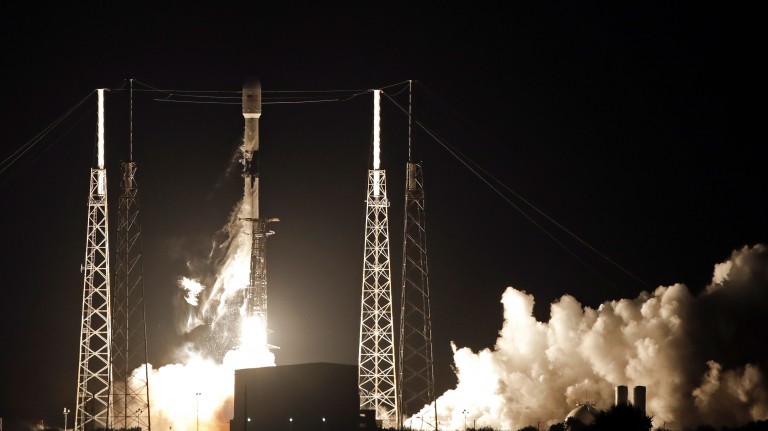The satellite internet contest is heating up. SpaceX has launched the first 60 satellites of its internet constellation, Starlink.
The details: The Falcon 9 rocket launched from Cape Canaveral in Florida at 10:30 p.m. EST on Thursday night. The 60 satellites make up SpaceX’s heaviest payload to date, weighing about 500 pounds (227 kilograms) each. You can watch a video of the launch here.
Some background: SpaceX is one of many companies attempting to build up a global broadband internet network in low Earth orbit (LEO). The firm wants to launch nearly 12,000 satellites and plans to pick up the pace of deployment. The plan right now is to continue launching batches of 60 at a time, putting one to two thousand into orbit each year. Those kinds of numbers are prompting some concerns about clogging up orbit (“Why satellite mega-constellations are a threat to the future of space”).
The first of many: Other organizations, such as OneWeb, Amazon, Telesat, and LeoSat, are also planning to use vast numbers of lower-capacity LEO satellites to provide broadband internet connections to the globe. Each will use hundreds or thousands of the satellites, which will circle the Earth and beam internet to the surface. OneWeb launched the first of its hundreds of satellites earlier this year.

